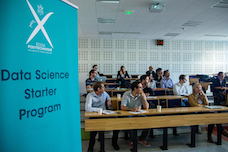Machine learning for scientific computing is a recent research field based on both machine learning and scientific computing tools. Its goal is the development of new robust, efficient, and interpretable methods to solve problems in science and engineering, such as partial differential equations (PDEs), parameter identification, or inverse problems.
We will start with an overview of machine learning, focusing on supervised learning, from the perceptron to convolutional networks.
Next, we will delve into the numerical solution of PDEs using neural networks, particularly Physics-Informed Neural Networks (PINNs). This approach combines PDE solving with the incorporation of experimental data. We will present both the methods and the underlying algorithms, along with their theoretical justifications.
We will also explore learning operators through neural networks for parameter identification and inverse problems. In the context of PDEs, these new networks directly learn the functional parametric dependence of the solution. Thus, they are capable of learning an entire family of PDEs, unlike traditional methods or networks that generally solve a specific instance of the equation.
All sessions in small classes will be conducted using Jupyter notebooks. A mini-project will provide practical application of the concepts and methods taught, applying them to real-world systems.
The course will be taught by an educational team consisting of Hadrien Montanelli (Researcher at Inria and Lecturer at École Polytechnique), Samuel Kokh (Research Director at CEA), and Loïc Gouarin (Research Engineer at École Polytechnique).


